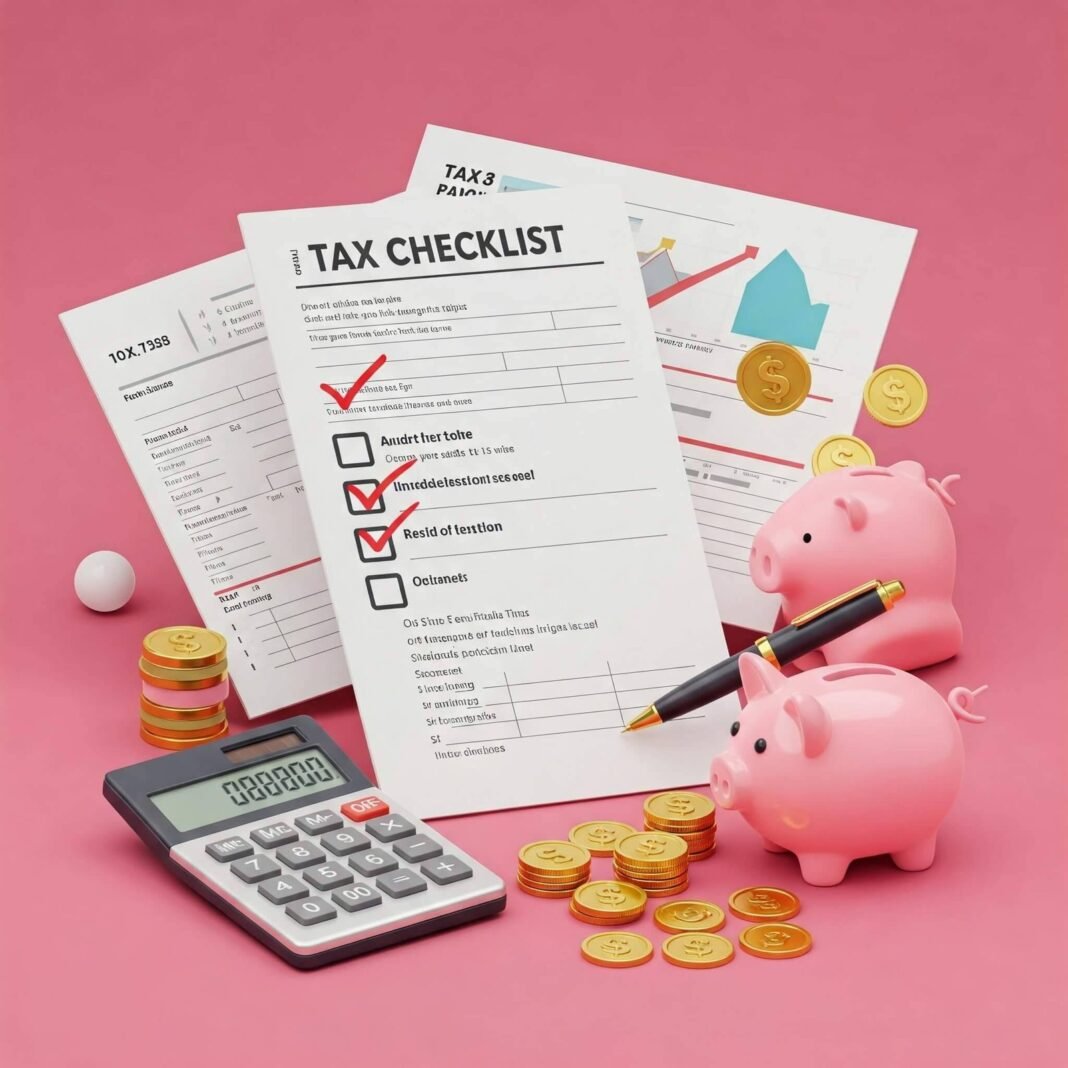How to legally pay less taxes? Man, I gotta tell you, it’s the question that’s been haunting me like that one mosquito that buzzes right by your ear at 3 a.m. in this humid Mumbai flat I’m crashing in right now. I’m an American dude, plopped down in India for what was supposed to be a “quick work stint,” but nah, it’s turned into this whole tax tango across borders. Picture this: Last Diwali, I’m knee-deep in a pile of masala-scented receipts, sweating bullets because I forgot to track my freelance gigs properly—total rookie move, and yeah, it stung like that extra-spicy pav bhaji I regret every time. But here’s the raw truth, from my flawed, jet-lagged brain: Wealth planners’ top tips aren’t some ivory-tower BS; they’re lifesavers when you’re fumbling through India’s GST maze while dreaming of Uncle Sam’s Form 1040. Seriously, I learned the hard way that legal tax reduction strategies can feel like cheating the system without the felony—pure bliss, if you don’t mind the paperwork papercuts.
Like, digress for a sec: The other day, I’m at this hole-in-the-wall accountant’s office in Bandra, fan whirring like it’s auditioning for a horror flick, and the guy’s like, “Sahib, you Americans always overpay—start with deductions!” I laughed, but inside? Panic city. Anyway, back on track—these tips? They’re my messy gospel, born from errors that’d make my CPA back home facepalm.

How to Legally Pay Less Taxes: Digging into Deductions Like a Pro (Or At Least, Not a Total Noob)
Okay, so how to legally pay less taxes starts with deductions, right? But not the boring kind—I’m talking the ones that hit you with that “aha!” rush, like when you finally nail a perfect aloo paratha flip without burning your fingers. From my spot on this rickety balcony overlooking the Arabian Sea (waves crashing like they’re mocking my bank balance), I remember my first big win: Maxing out those home office deductions. Back when I was stateside, I’d claim my IKEA desk setup, but here in India? Holy crap, blending it with local rules opened floodgates. Wealth planners hammered this home—track every Zoom call from your “office” (mine’s a corner with a cow mooing outside the window), and boom, you’re shaving off chunks legally.
- Remote work magic: Log your internet bills, that wonky router you bought from Flipkart—deduct it all. I once forgot my ergonomic chair (total back saver in these 12-hour coding marathons), and it cost me like 5k rupees extra. Embarrassing? Yeah, but now? I’m on it like glue.
- Health and education hacks: Gym memberships? Deductible if it’s “preventive care.” And those online courses on Udemy about blockchain? Education credits, baby. I blew it last year by not filing for my yoga retreat—turns out, it’s legit wellness spending in India. Who knew?
- Charity with a twist: Donate to local NGOs, like that animal shelter down the lane feeding street dogs. Not only does it warm your cynical American heart (mine’s thawing, slowly), but it’s a straight-up tax write-off. Pro tip: Keep selfies with the pups for proof—adorable and audit-proof.
Weirdly, though, I contradict myself here—part of me feels guilty, like I’m gaming the system, but nah, it’s just smart. Wealth planners say it’s your right; my gut says it’s survival in this economy. Anyway, moving on before I spiral.

How to Legally Pay Less Taxes: Retirement Plays That Don’t Suck (My Goa Gaffe Included)
Alright, let’s get real about retirement—how to legally pay less taxes through these accounts is like finding an AC blast in Kolkata’s summer hell. I’m typing this from a fan-cooled room in Goa, salt air sneaking in, reminding me of that epic fail last beach season. See, I dumped cash into my old 401(k) without thinking about India’s NPS (National Pension System)—dude, the cross-border rollover? A nightmare I barely survived. Felt like drowning in paperwork while seagulls laughed overhead. But wealth planners’ tax hacks flipped the script: Contribute early, watch the magic of tax-deferred growth. It’s not glamorous, but from my flawed view, it’s the unsexy hero that kept me from eating instant noodles forever.
Here’s the chaotic list I scribbled in my notebook after one too many feni shots:
- Roth IRA for expats: Convert traditional to Roth strategically—pay taxes now, withdraw tax-free later. I timed mine wrong once, owing a surprise chunk; lesson learned, now it’s smooth sailing.
- Indian EPF vibes: If you’re earning here, park it in Employees’ Provident Fund. Yields are killer, and it’s tax-exempt up to limits. My first deposit? Felt like adulting for real, even if I celebrated with questionable street food.
- HSAs on steroids: Health Savings Accounts carry over borders if you’re savvy. Stocked mine with telemed fees from that Delhi doc who fixed my monsoon flu—deducted it all, felt like a boss.
Honest confession: I still second-guess if I’m doing it “right”—like, is this privilege or just hustle? But screw it, in this contradictory life, minimizing taxes legally keeps the lights on. Oh, and for credibility, check out this IRS guide on expat retirement or India’s NPS portal—they’re gold, trust.
How to Legally Pay Less Taxes: Sneaky (But Legal) Investments That Pay Off Big
Investments, huh? How to legally pay less taxes via smart plays is where it gets fun— or terrifying, depending on your risk tolerance. Right now, as thunder rumbles outside my Bandra window (smells like wet earth and regret), I’m eyeing my portfolio app, chuckling at how I once bet big on crypto without tax-loss harvesting. Lost my shirt, gained a story: Ended up owing extra because I didn’t offset gains with losses. Wealth planners rolled their eyes when I confessed, but their tip? Game-changer. It’s like haggling at Chor Bazaar—find the deals, negotiate down your bill.
- Municipal bonds: Low-risk, tax-free interest. I dipped in via an Indian mutual fund twist—yields steady, stress low.
- ELSS funds in India: Equity-linked savings schemes lock you in for three years but slash your taxable income. My first one? Turned a dud investment into a tax win; surprising, right?
- Tax-loss selling: Sell losers to offset winners. Did this mid-Goa trip, turned a red stock into green savings—felt like wizardry.
Ugh, but here’s my unfiltered beef: These strategies scream “wealthy person’s game,” and as a middle-class American scraping by on freelance, it irks me. Still, they work—check Vanguard’s investment tax tips for the deets. Anyway, don’t sleep on ’em.

Wrapping This Tax Rant: My Flawed Take on How to Legally Pay Less Taxes
Whew, okay, chat’s winding down—like that last sip of cutting chai before the auto-rickshaw rushes off. How to legally pay less taxes? From my sweaty, samosa-stained perch in India, it’s less about perfection and more about not screwing yourself harder than the system already does. I botched plenty—missed deadlines, ignored red flags—but these wealth planners’ top tips? They’re my messy map forward, contradictions and all. You’re probably thinking, “This guy’s a hot mess,” and yeah, guilty. But hey, if a flawed American like me can hack it, so can you.
Grab a chai (or coffee, no judgment), hit up a planner, and start small—maybe that deduction you’ve been eyeing. What’s your tax horror story? Drop it in the comments; let’s commiserate. And for more chaos, subscribe—promise it’ll be this real next time. Peace out from monsoon central.





